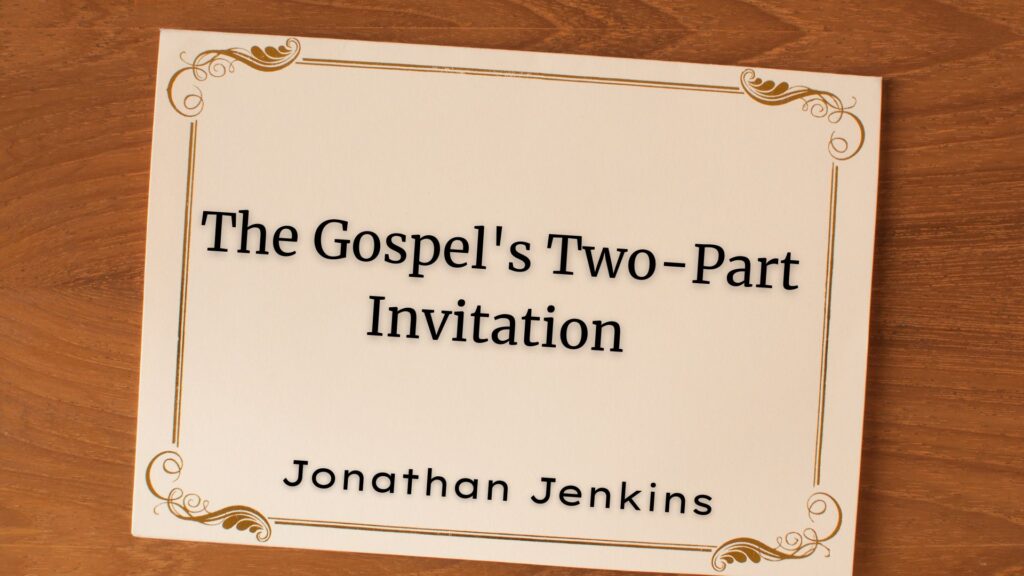I have been told that the Spirit’s direct intervention on the heart of the lost is an integral part of the God’s plea to save them. Often, the idea is drawn from an understanding of Acts 16:14: “One who heard us was a woman named Lydia, from the city of Thyatira, a seller of purple goods, who was a worshiper of God. The Lord opened her heart to pay attention to what was said by Paul.” The phrase “[T]he Lord opened her heart” is attributed to the work of the Spirit upon the heart of Lydia to help her understand and obey the word.
What I have heard stated is that the Spirit works “in conjunction with,” “beyond the influence of”, or “directly, but in support of,” the word. Regardless of the preferred semantics, the idea that the Spirit works in some way to support directly the preached gospel is integral to the newest variants of teaching regarding the Holy Spirit in the church.
The problem is not just a matter of words. It is a fundamental problem of doctrine. The most significant issue is that the Bible has already established, by direct statement, the Spirit’s method of “convicting the world concerning sin” (John 16:8). That method is neither ambiguous, nor mystical. It is objective, knowable, discernable, and, by present standards, boring. The Holy Spirit appeals to the lost through the avenue of His word. The Bible states: “The Spirit and the Bride say, ‘Come.’ And let the one who hears say, ‘Come.’ And let the one who is thirsty come; let the one who desires take the water of life without price” (Revelation 22:17). Two actors are present in the preceding verse: 1) The Spirit; and 2) The Bride. The most common understanding of identifying these actors is that the “Spirit” refers to the Holy Spirit
and the “bride” refers to the church. If we take that approach to be the correct one then the gospel’s invitation is sent out from two actors: The Holy Spirit, and people in the Lord’s church. However, both actors are using the same approach in providing that offer. The verse states that both actors are “saying” the invitation of obey the Gospel. Both are “saying” the gospel to the lost. Both are using words to appeal
to the heart of those needing to find the “new Jerusalem.” The Spirit is doing so through the words He inspired. The Bride is doing so through the proclamation of those same words now inscripturated. There is the manner of the Holy Spirit’s offer of salvation to the lost.
The Holy Spirit appeals to the lost through His word. No other means of approach to the human heart can be sustained from scripture. There is no ambiguity or mysticism in the way the Spirit appeals to humanity. He does it through the living and active word He inspired and infused with His power. What must be remembered is that His appeal works, not in conjunction with His word, but together with the appeal of the Bride. If the church (meaning the individual efforts of the members of His body) fails to offer its part of the invitation, the Spirit’s influence on the lost is muted. God has chosen the “foolishness of preaching” to save the world. The Spirit provided a powerful message but relies on each of us to ensure the lost have an opportunity to be saved. Are you doing your part to connect people to the power of the Holy Spirit?

Jonathan Jenkins
Jonathan is the co-founder of Digital Bible Study. He currently preaches at the Rockledge church of Christ

The Sanctification of the Holy Spirit
Since then we understand that the path to salvation begins with the hearing of faith, if it is true that the order of the phrases in this verse is significant we would arrive at an interesting conclusion. We would come to a position stating that prior to the Thessalonian Gentiles’ believing the gospel, God acted through His Spirit to sanctify (or set apart) them.

The Same Gift
The exact same phrase, we are told, describes two gifts that have not one point of commonality between them except that they are both from God. I understand why people are confused when they hear teaching about the Holy Spirit. Is there another doctrine where God’s use of language is so unpredictable?

The Resistible Grace of the Holy Spirit
Within their theology, Calvinists have a perfectly consistent mechanism to address the problem of people who cannot receive the things of the Spirit. They simply assert that the Spirit overrides the depravity of the human condition and forces salvation upon them. Centuries ago, John Calvin “solved” this problem the only way possible. In time, our preachers will also come to the same conclusion. From where they stand now, without turning back, Calvin’s conclusion is inescapable.

